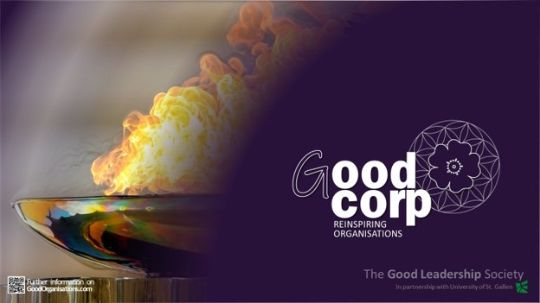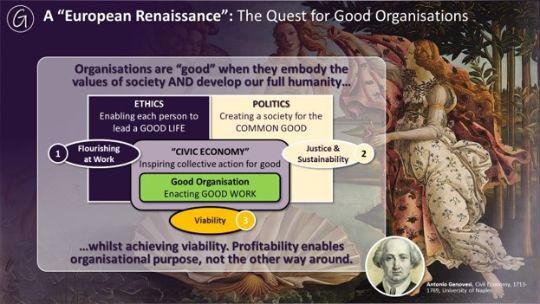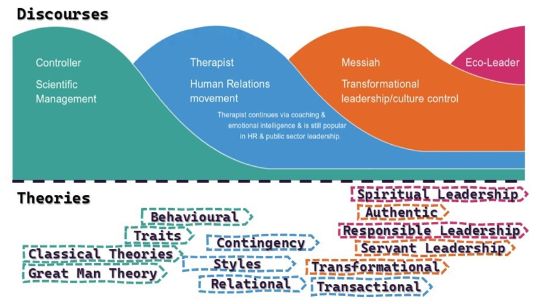
In his famous "Great Transformation”, Karl Polanyi calls labour, land and money “fictitious commodities”. These three are not truly commodities, he suggests, as they can never be managed effectively by the market, and necessarily require administration by the State.

In his famous "Great Transformation”, Karl Polanyi calls labour, land and money “fictitious commodities”. These three are not truly commodities, he suggests, as they can never be managed effectively by the market, and necessarily require administration by the State.
In this, Polanyi argues, lies also a more fundamental issue with the libertarian ideology of self-regulating markets - the economy, by definition, can never truly work without the regulatory power of and outside the “embeddedness” within the State.
Simply put, there are things money can't and shouldn't buy. In a “good society”, labour, land and money must never be subordinate to a purely instrumental and economic logic. They should never be treated as “pure commodities”. Polanyi is absolutely right to request - already in 1944 (!) - a thorough re-examination of our language, and an axiological re-qualification of our economic system. It is easy to fall into the trap of using economic numbers to evaluate societal “performance”, rather than using civic virtues to ensure the proper functioning of the world of business.
Before we know it, the idea of "labour” legitimises a dangerous sellout of human life, “land” belittles the undue extraction of nature and our planet, and “money” as end-in-itself becomes a terrible substitute for value. As Mark Carney writes: when, the “price of everything is becoming the value of everything” we’re in deep trouble.
In fact, we’re often debating how “a minimum state should enable markets" to manage/control/use land, labor or money. But the fundamental point is: these aren't for the economy to just manage, control or use instrumentally -
❌ We debate laws to protect property rights - while land = nature is never fully ours to possess, take or give.
❌ We focus on monetary politics to keep interest rates stable, because economic cycles cause recessions - but the real issue is that our markets must contribute to a much richer definition of societal “value” and public wellbeing, with every transaction they make.
❌ And we ask governments to take on the unemployed or to upskill workers, to pave the way for the “future of work” - where the crucial question is how organizations can collectively construct a better “work of the future" to enable human flourishing.
Many might feel this conversation is unnecessary - which just shows to what extent a neoliberal ideology has undermined the civic nature of society. Yet, whatever people might think, at the end what matters most is not just GDP, but public happiness. As Amartya Sen indicated decades ago, it's about time that we take the discussion about an "ethical embeddedness" of business serious and upgrade our measure set, rather than continue to point at labour statistics and stock prices as ineffective proxies for societal freedom and development...
Any great transformation must start in our heads...
#GoodOrganisations #Transformation #Leadership
In his famous "Great Transformation”, Karl Polanyi calls labour, land and money “fictitious commodities”. These three are not truly commodities, he suggests, as they can never be managed effectively by the market, and necessarily require administration by the State.
In this, Polanyi argues, lies also a more fundamental issue with the libertarian ideology of self-regulating markets - the economy, by definition, can never truly work without the regulatory power of and outside the “embeddedness” within the State.
Simply put, there are things money can't and shouldn't buy. In a “good society”, labour, land and money must never be subordinate to a purely instrumental and economic logic. They should never be treated as “pure commodities”. Polanyi is absolutely right to request - already in 1944 (!) - a thorough re-examination of our language, and an axiological re-qualification of our economic system. It is easy to fall into the trap of using economic numbers to evaluate societal “performance”, rather than using civic virtues to ensure the proper functioning of the world of business.
Before we know it, the idea of "labour” legitimises a dangerous sellout of human life, “land” belittles the undue extraction of nature and our planet, and “money” as end-in-itself becomes a terrible substitute for value. As Mark Carney writes: when, the “price of everything is becoming the value of everything” we’re in deep trouble.
In fact, we’re often debating how “a minimum state should enable markets" to manage/control/use land, labor or money. But the fundamental point is: these aren't for the economy to just manage, control or use instrumentally -
❌ We debate laws to protect property rights - while land = nature is never fully ours to possess, take or give.
❌ We focus on monetary politics to keep interest rates stable, because economic cycles cause recessions - but the real issue is that our markets must contribute to a much richer definition of societal “value” and public wellbeing, with every transaction they make.
❌ And we ask governments to take on the unemployed or to upskill workers, to pave the way for the “future of work” - where the crucial question is how organizations can collectively construct a better “work of the future" to enable human flourishing.
Many might feel this conversation is unnecessary - which just shows to what extent a neoliberal ideology has undermined the civic nature of society. Yet, whatever people might think, at the end what matters most is not just GDP, but public happiness. As Amartya Sen indicated decades ago, it's about time that we take the discussion about an "ethical embeddedness" of business serious and upgrade our measure set, rather than continue to point at labour statistics and stock prices as ineffective proxies for societal freedom and development...
Any great transformation must start in our heads...
#GoodOrganisations #Transformation #Leadership
Other popular articles in the KnowledgeHub: Business Transformation




 .
.